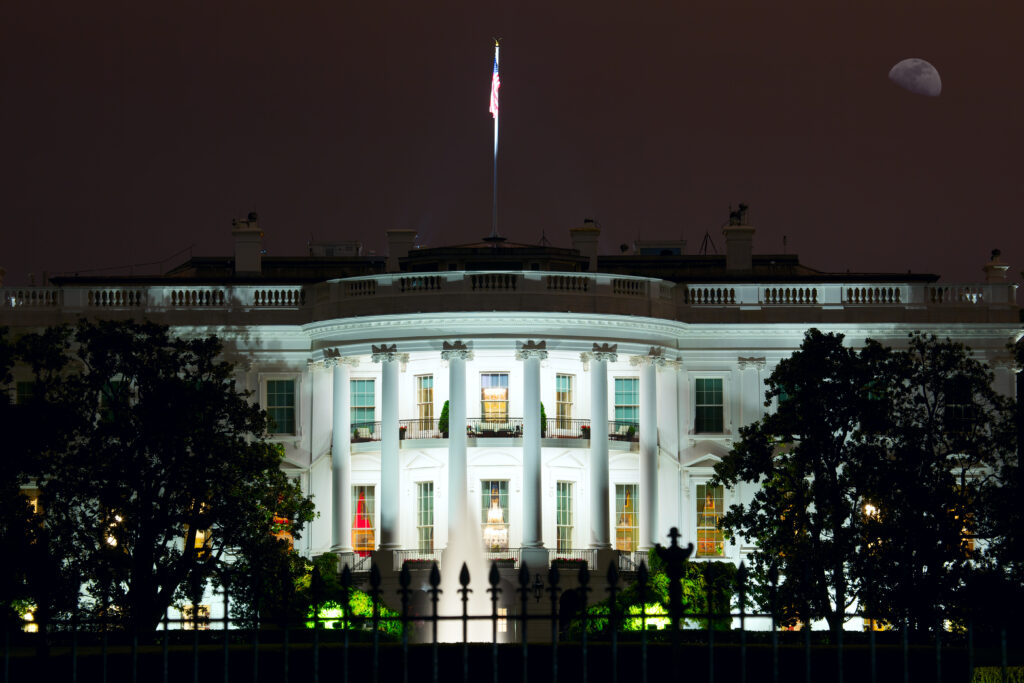
Trump Admin Busy During Shutdown Negotiations, Sparking Concern in Healthcare Sector
During the past couple weeks, as contentious negotiations over spending legislation heated up, then came to a head in the form of a federal government

Let me start with a statement of the obvious and a brief overview of federal law. As for the obvious, if the U.S. Department of Justice (DOJ) is asking questions about your practice, you’re having a very bad day. And you need a lawyer.
In the government’s battle against fraud and abuse, there are three statutes with which you should be familiar. The first is the False Claims Act (FCA). The second is the Anti-Kickback Statute or AKS. And the third is the Physician Self-Referral or Stark law. An additional tool sometimes used is the wire fraud statute.
The FCA provides for both civil and criminal penalties. Fraud allegations may arise from AKS or Stark law violations. AKS is a criminal law prohibiting a wide range of “remuneration.” Finally, Stark prohibits self-referrals for many government-funded services.
On that background, let’s look at four recent cases highlighted by DOJ. The first case is a bit unusual in that it’s a guilty verdict from a jury trial. Jose Goyos was part of a scheme that tricked doctors into submitting $67 million in unnecessary genetic testing. Medicare paid over $52 million. He and 20 defendants await sentencing for wire fraud and money laundering. They face up to 30 years in prison.
The next two cases are judgments based on guilty pleas. Lourdes Navarro enabled Matias Clinical Laboratory to perform over $350 million in unnecessary viral testing, even though only COVID testing had been ordered. Navarro pleaded guilty to conspiracy to commit healthcare and wire fraud. She faces up to 20 years in prison.
The next case is David Lu, an owner of two New York state pharmacies. Lu pleaded guilty to billing Medicare for $25 million in unnecessary prescriptions through bribes and kickbacks. In this case, the payments to doctors were in the form of rent and office staff.
The final case involves a settlement with the government arising from a whistleblower claim. In this case, Cardiac Imaging Inc. and its CEO Sam Kancherlapalli agreed to pay more than $85 million to resolve allegations that they paid cardiologists excessive fees. The fees allegedly exceeded fair-market value and covered services not actually provided. Cardiac Imaging and Kancherlapalli were also required to enter into a five-year Corporate Integrity Agreement with the U.S. Department of Health and Human Services (HHS) Office of Inspector General (OIG).
We can learn several things from these cases.
First, criminal trials continue to be less common than guilty pleas and settlements. Convictions, regardless of trial or plea, may carry a stiff prison sentence. Remember, there’s no parole from federal prison.
Second, some of the schemes involved outright trickery. Providers need to be aware of who they’re dealing with, and to whom they are providing some form of authorization. Ensure that your contracts offer the right to audit contractor billing practices.
Third, if a vendor offers compensation connected to the purchase of its product or services, be very cautious. AKS and Stark are very broad, with carefully circumscribed exceptions. Always make sure your relationship is reduced to a comprehensive writing covering every aspect of the transaction.
Fourth, if the compensation seems to be too good to be true or more generous than expected, there’s probably a catch. That catch may be a violation of AKS or Stark. You need a fair market assessment from a third party.


During the past couple weeks, as contentious negotiations over spending legislation heated up, then came to a head in the form of a federal government

EDITOR’S NOTE Day 3 of the federal shutdown continues. This article by Rose Dunn is part of a special section today published by RACmonitor and
Please log in to your account to comment on this article.

Sepsis remains one of the most frequently denied and contested diagnoses, creating costly revenue loss and compliance risks. In this webcast, Angela Comfort, DBA, MBA, RHIA, CDIP, CCS, CCS-P, provides practical, real-world strategies to align documentation with coding guidelines, reconcile Sepsis-2 and Sepsis-3 definitions, and apply compliant queries. You’ll learn how to identify and address documentation gaps, strengthen provider engagement, and defend diagnoses against payer scrutiny—equipping you to protect reimbursement, improve SOI/ROM capture, and reduce audit vulnerability in this high-risk area.

Only ICD10monitor delivers what you need: updates on must-know changes associated with the FY26 IPPS, including new ICD-10-CM/PCS codes, CCs/MCCs, and MS-DRGs, plus insights, analysis and answers to your questions from two of the country’s most respected subject matter experts.

This third session in our 2026 IPPS Masterclass will feature a review of FY26 changes to the MS-DRG methodology and new technology add-on payments (NTAPs), presented by nationally recognized ICD-10 coding expert Christine Geiger, MA, RHIA, CCS, CRC, with bonus insights and analysis from Dr. James Kennedy.

This second session in our 2026 IPPS Masterclass will feature a review the FY26 changes to ICD-10-PCS codes. This information will be presented by nationally recognized ICD-10 coding expert Christine Geiger, MA, RHIA, CCS, CRC, with bonus insights and analysis from Dr. James Kennedy.

Federal auditors are zeroing in on Inpatient Rehabilitation Facility (IRF) and hospital rehab unit services, with OIG and CERT audits leading to millions in penalties—often due to documentation and administrative errors, not quality of care. Join compliance expert Michael Calahan, PA, MBA, to learn the five clinical “pillars” of IRF-PPS admissions, key documentation requirements, and real-life case lessons to help protect your revenue.

During this essential RACmonitor webcast Michael Calahan, PA, MBA Certified Compliance Officer, will clarify the rules, dispel common misconceptions, and equip you with practical strategies to code, document, and bill high-risk split/shared, incident-to & critical care E/M services with confidence. Don’t let audit risks or revenue losses catch your organization off guard — learn exactly what federal auditors are looking for and how to ensure your documentation and reporting stand up to scrutiny.

Learn how to navigate the proposed elimination of the Inpatient-Only list. Gain strategies to assess admission status, avoid denials, protect compliance, and address impacts across Medicare and non-Medicare payors. Essential insights for hospitals.

RACmonitor is proud to welcome back Dr. Ronald Hirsch, one of his most requested webcasts. In this highly anticipated session, Dr. Hirsch will break down the complex Two Midnight Rule Medicare regulations, translating them into clear, actionable guidance. He’ll walk you through the basics of the rule, offer expert interpretation, and apply the rule to real-world clinical scenarios—so you leave with greater clarity, confidence, and the tools to ensure compliance.
Happy National Doctor’s Day! Learn how to get a complimentary webcast on ‘Decoding Social Admissions’ as a token of our heartfelt appreciation! Click here to learn more →
CYBER WEEK IS HERE! Don’t miss your chance to get 20% off now until Dec. 2 with code CYBER24